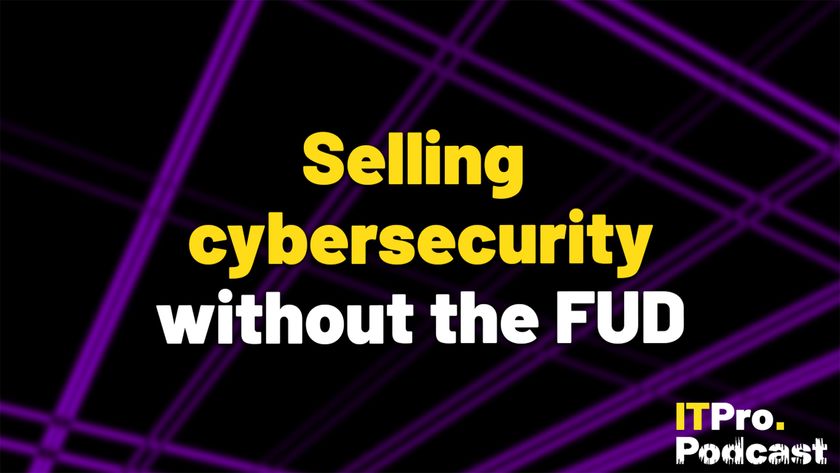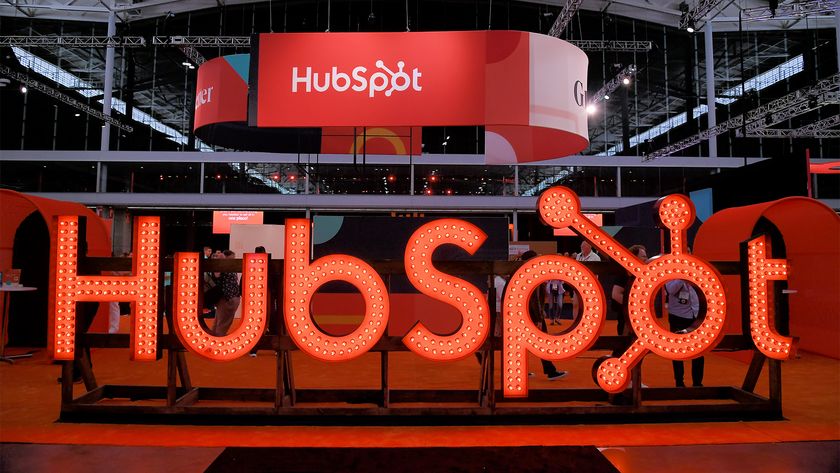How to build web traffic without turning to the dark side
You can buy links and likes, but they won’t do you any favours in the long-run
Episode II: Attack of the Clones
Talking of content, we come to the much used "trick" of stealing someone else's, known as spinning. Marc Swann, search director at SEO specialists Glass Digital, told PC Pro that it's unfortunate that there are "50 shades of grey areas when it comes to SEO" courtesy of Google keeping spam-detection techniques something of an in-house secret.
That paranoia is understandable: if the process were made public then the black hats could game the system more readily. But that doesn't mean definite no-no's are hard to come by, including the aforementioned content spinning. "Stealing someone else's content using a word-swap script to turn stolen content into unique gobbledegook is an effective way to get slapped with a Google penalty," Swann said. He also cautioned against any agency or "expert" who "promises #1 rankings as absolutely no-one can make these kinds of guarantees".
Manchester based I-COM is one of the biggest digital agencies in the North West, and Jamal Atcha is the SEO manager there. He talks us through another black hat technique that should be avoided: keyword spamming. This is when specific keywords are used many times on a page to try and bump up the relevance ratings.
Google is, naturally, onto this one. Far better, Atcha said, "to avoid overuse of the same keywords or phrases on a page and write naturally with the user in mind". Similarly, overusing your keywords as the anchor text (link) every single time someone links to you is harmful. "When linking back to your website," Atcha advised, "keep anchor texts varied by including brand terms, similar keyword variations and generic terms like 'click here'."
It used to be that all that would happen if you tried to game Google was that it cancelled out any benefit, by making whatever technique was being used impotent. That all changed in 2013 when Google started actively penalising sites caught cheating the system. But what does "penalising" actually mean to Google? According to Ramon-Capon from Greenlight Digital, the penalty can vary from page-level to site-level and simply involve a drop in your organic, as opposed to sponsored/advertising, rankings. That, in turn, will harm organic traffic to your site, precisely what you were looking to build in the first place. "If you are penalised by either the Panda or Penguin algorithm," Ramon-Capon continued, "you will see the impact in near real-time once you make changes as these penalties happen in a very speedy manner."
Episode IV: A New Hope
Cheating Google may be a fool's errand, but what about social media? Social media can drive plenty of traffic to your online business if done properly. Of course, that takes time. You can kickstart traffic with commercial tools such as promoted tweets and targeted advertising that the platform itself provides. However, for many new online businesses, these can seem like a slow and expensive route to traffic they need right now.
This has led to the emergence of black-hat techniques such as follower and like farming. Both have become heavily marketed by the "farmers" in question, and both are against the terms and conditions of the social media platform -- be it Facebook, Instagram, LinkedIn or Twitter.
Get the ITPro. daily newsletter
Sign up today and you will receive a free copy of our Focus Report 2025 - the leading guidance on AI, cybersecurity and other IT challenges as per 700+ senior executives
The pitch is simple: we will provide you with a bundle of followers or likes, in return for a fee. That fee will depend on how many thousands of either you are buying. Both can be detected by the social media platforms using pattern recognition technology, which can determine when fake accounts or click farms are being employed. Much of the time, for example, Facebook claims it can block fake likes before they even reach the target page of the buyer. Facebook says that it will "send notifications to page administrators when we block or remove fake likes... to help them learn how to gather authentic fans." Repeat offenders could find their accounts suspended.
Aggressive following is more in grey hat territory, where an account follows or likes large numbers of others every day in the hope of getting a reciprocal follow or like, and then unfollows those who don't play the same game. The thing is that none of this really works anyway, as Greenlight Digital's Ramon-Capon explained. "It's important to remember that it's not about the number of followers or likes you have but the engagement these followers have with your pages," he said. And, as Atcha from I-COM reminded us, "genuine customers will see straight through you if you have thousands of followers but only a few people liking or sharing your posts."
Episode IV: A New Hope
We've covered what you shouldn't be doing, which leaves us with the obvious question of what marketing path should you take to build web traffic legitimately? We turned to Joe Friedlein, founder and managing director of Browser Media, a UK-based "inbound marketing agency" that works to attract targeted web traffic for clients. Friedlein summed it up when he told PC Pro that the secret to building sustainable traffic to your site is to "think about your users rather than thinking about Google".
If you create a site that offers content and functionality that is genuinely helpful to your target audience, you will benefit from organic engagement and attract links. "The search engines will recognise this," Friedlein said, "and you will be rewarded, over time, with improved visibility across the major search engines."
Friedlein has a few tips to help grow that healthy, organic traffic. "You should use keyword research as a stimulus to understand what people are looking for and to steer the content that you publish on your site" he said. By using the same language that your target audience use, you will increase the likelihood of ranking for the keywords that they use to search and, crucially, increase the likelihood that the site will engage with your visitors. "Rather than focusing on commercially motivated pages," Friedlein advised, "think about content that you can offer that is genuinely helpful. This will naturally attract links, which will then help to improve rankings."
Rogue One: A Star Wars Story
Of course, content alone is very unlikely to deliver immediate success. And it's that immediacy that startups yearn for, and often need to survive until the next funding round or letter from the bank. To build traffic quickly you must invest your energy into what Friedlein refers to as "amplifying your content".
This is more of an online PR exercise than an SEO one. You have to build an understanding of where it is your target audience goes online, and then forge relationships with those sites. Sharing content works better than simply adding irrelevant links purely for perceived SEO gain. Understanding the type of content that will resonate with your audience, and that of any sites you share with, is key.It's better to start slowly, Friedlein advised, than rush in and ask for too much. "This is especially true for social media, which offers incredible potential for referral traffic.
"Take time to listen and understand the nature of the discussion before steaming in with your corporate message," he added. There's no doubt that social-media engagement takes time, but it can pay dividends in terms of shared links and consequently traffic to your site.All that said, Friedlein admits there isn't a silver bullet. "If you want immediate results you should look at paid traffic sources, especially paid search," he said. The argument being that if you want to build a brand, a business that will enjoy long-term success, then investing resources to build both a great site and great relationships is key to that goal.
The "building a great site" bit is often overlooked when it comes to thinking about hits. Which is a shame, as it really does matter. "It may seem obvious, but make sure your website is technically 'in shape' and keep up-to-date with Google Webmaster guidelines so you can future-proof your strategy," said Greenlight Digital's Ramon-Capon.
He also emphasised the need for ensuring all your important pages are keyword-optimised with relevant title tags, headers and engaging content. All of this will impact those key SERP ratings. As Google has strived to bring users more relevant search results, so its algorithms have been tweaked and evolved to better evaluate the quality of site content in a more human-friendly way.
"Google's crawlers are better at assessing websites the way users do," said Jamal Atcha from I-COM, "which means factors such as click-through-rates, bounce rate and time on site, and providing good user experience, have become important things to consider to improve how your website is perceived by Google."
Remember: the bots are never going to buy from you or read your articles. People will.
Main image credit: Bigstock
This article originally appeared in PC Pro
Davey is a three-decade veteran technology journalist specialising in cybersecurity and privacy matters and has been a Contributing Editor at PC Pro magazine since the first issue was published in 1994. He's also a Senior Contributor at Forbes, and co-founder of the Forbes Straight Talking Cyber video project that won the ‘Most Educational Content’ category at the 2021 European Cybersecurity Blogger Awards.
Davey has also picked up many other awards over the years, including the Security Serious ‘Cyber Writer of the Year’ title in 2020. As well as being the only three-time winner of the BT Security Journalist of the Year award (2006, 2008, 2010) Davey was also named BT Technology Journalist of the Year in 1996 for a forward-looking feature in PC Pro Magazine called ‘Threats to the Internet.’ In 2011 he was honoured with the Enigma Award for a lifetime contribution to IT security journalism which, thankfully, didn’t end his ongoing contributions - or his life for that matter.
You can follow Davey on Twitter @happygeek, or email him at davey@happygeek.com.

How to sell cyber security without the FUD

HubSpot and Amplitude look to product-led growth with new partnership














